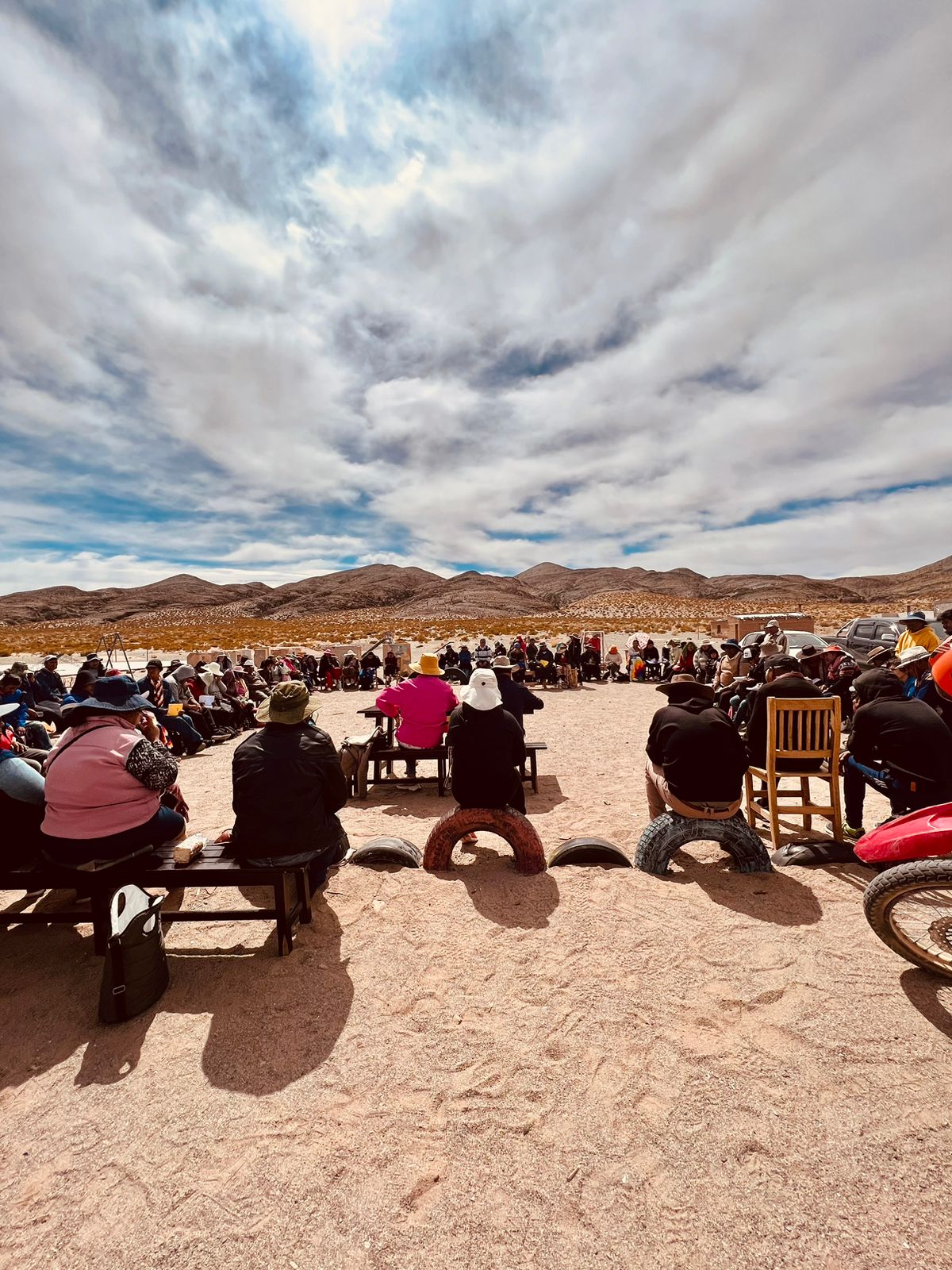Argentina’s Supreme Court of Justice will address a protection action initiated more than six years ago by Indigenous communities from the Salinas Grandes and Laguna de Guayatayoc basin and FARN, seeking to protect their territories and the right to a healthy environment amid mining expansion. The claim quotes inadequate environmental impact assessments and human rights violations linked to lithium and borate projects.
The Supreme Court of Justice of the Nation has taken a decisive step by declaring itself competent to intervene in the constitutional protection action alleging violations of their collective rights – including Indigenous Peoples’ right to consultation and to free, prior and informed consent- and of environmental law due to lithium and borate mining projects in their territories.
Filed in 2019, by Indigenous communities from the Salinas Grandes and Laguna de Guayatayoc basin, together with FARN, the action seeks to prevent serious and irreversible harm to the water system shared by the provinces of Salta and Jujuy. While lithium amog other minerals such as copper, are central to global energy transition, their extraction takes place in fragile ecosystems such as the wetlands of the Salinas Grandes and Laguna de Guayatayoc basin, where mining operations disrupt delicate hydrological balances and threaten entire basins, including the communities that live there.
This basin is home to unique biodiversity adapted to extreme conditions and sustains the livelihoods and culture of Indigenous Peoples and local communities. It also contritbutes to climate change mitigation and adaptation. Any disruption —such as water extraction for mining—can trigger salinization or desiccation, with devastating environmental and social consequences. For this reason, environmental assessments must address cumulative and synergistic impacts at the basin scale, and ensure Indigenous Peoples’ right to free, prior and informed consultation and consent.
Why the Court’s Decision Matters
The Court recognized that the claim submitted by the communities and FARN involves an environmental resource shared by the provinces of Jujuy and Salta, establishing its interjurisdictional nature as established in Article 7 of the General Environmental Law (No. 25,675), which provides for federal jurisdiction when degradation or contamination affects interjurisdictional environmental resources.
This acknowledgment underscores that the basin must be treated as a single, integrated ecosystem, where decisions cannot be taken in isolation without endangering its integrity, and requiring coordinated action between national and provincial authorities. This reasoning builds on previous precedents and on the principles already upheld in this case, which acknowledge an ecocentric legal perspective on water—one that considers not only private or governmental interests but also the needs of the ecosystem itself.
In addition, the Court granted the provinces of Jujuy and Salta, as well as the National State, a 30-day period to submit reports detailing the background and legal basis of the measures in question. This requirement seeks to address the precautionary request made by the communities to suspend mining permits while the merits of the case are under review. The decision follows the line taken in 2023, when the Supreme Court requested detailed information on authorizations, consultations and environmental assessments, aiming to bring transparency to processes that have historically lacked public oversight and to ensure stronger accountability in mining activities.
This development follows an ongoing conflict generated by the fragmented and isolated approval of multiple lithium mining projects—undertaken without a comprehensive ecosystem-based approach and without respecting the rights to access information, consultation and consent of the Salinas Grandes and Laguna de Guayatayoc communities. The situation unfolds while several countries—particularly in the Global North—are intensifying efforts to secure access to so-called critical minerals for the energy transition.
An opportunity for a landmark ruling
This case offers the Supreme Court a historic opportunity to reaffirm Argentina’s commitment to the defense of human rights and nature amid the climate and ecological crises. Building on its own jurisprudence —such as the pro natura principle—and regional frameworks such as the Inter-American Court of Human Rights’ Advisory Opinion No. 32 on the climate emergency, and the UN Secretary-General’s Panel on Critical Minerals for the Energy Transition, the Court could set a precedent that prevents irreversible damage to water systems and safeguard Indigenous Peoples’ rights.
A ruling in favor of the Salinas Grandes and Laguna de Guayatayoc basin communities would resonate far beyond Argentina’s borders—marking a step forward in the global struggle to balance the energy transition with justice, rights, and ecological preservation.
